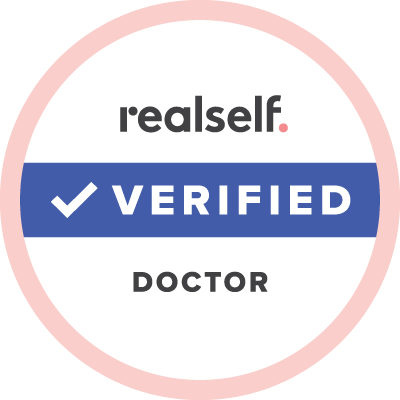Blog
How Can Plastic Surgery Affect Your Emotional Well-Being?
Posted June 20, 2024 in Plastic Surgery News
Recent studies have found a connection between positive mental health improvements and satisfactory aesthetic surgical results; this blog discusses the areas where patients saw improvements to their mental health following a positive surgical result and how prospective patients can take steps to ensure their plastic surgery experience is positive.
4 Min Read:
How Plastic Surgery Boosts Mental Health
People like to think of themselves as assertive problem-solvers. Most plastic surgery patients seek treatment to enhance or fix something that is bothering them. Perhaps they think their nose is too big for their face, their breasts are asymmetrical, or their abdomen is flabby. Plastic surgery allows everyone to change the things they dislike about themselves, hopefully boosting confidence and self-satisfaction in the process.
In a study published by the medical journal Plastic and Reconstructive Surgery, researchers compared people who proceeded with their cosmetic procedures with those who considered one or more procedures but ultimately changed their minds. Researchers in the study found that many of the patients who did undergo cosmetic surgery reported a wide range of mental health improvements over those who did not undergo surgery. These mental health improvements included:
- Reduced anxiety
- Less social phobia
- More goal accomplishments
- Improved quality of life and overall well-being
- Increased attractiveness
- More positive self-esteem
Who Might Not Benefit from Plastic Surgery?
In the same study, those who did not benefit emotionally or felt negative about their procedures, despite achieving good results, suffered from pre-existing conditions inducing body dysmorphic disorder, unrealistic expectations about their results, depression, and anxiety. The connection between mental health and plastic surgery is a source of much debate, especially when we consider the implications for patients as young as teenagers seeking cosmetic surgery.
So, while this study does bring up some interesting connections between plastic surgery and mental health, it does not make overt claims about this connection being positive or negative.
But it does beg the question: is there a way to control our experiences in order to ensure a better emotional outcome after cosmetic surgery?
How to Stay Positive About Plastic Surgery
Plastic surgery is a commitment–a big one. The decision to permanently alter your body is quite prominent, as your results will surely have an effect on many aspects of your life. While it’s clear there is a connection between overall happiness and a satisfying surgical result, there are some things you can do as a patient to ensure this outcome.
- Take your time in the decision-making process. Most people who end up regretting any major decision usually don’t give it enough thought. Don’t make this mistake with plastic surgery; really consider all the implications of the changes to your body and your appearance, weigh the risks and benefits, and consider the recovery process. Do your research to feel confident and in control of your results.
- Only do it for the right reasons. In an ideal world, every plastic surgery patient undergoes their procedures for the betterment of themselves only. But unfortunately, too many people have plastic surgery to please someone else. To ensure your own happiness and satisfaction with your decision, don’t do it for someone else. And if you do some introspection and find you might not be ready for surgery, you can always opt for less permanent options, like injectable treatments, until you’re ready.
- Choose the right surgeon. As you research prospective surgeons, pay attention to their credentials, experience, and patient testimonials. You want to feel comfortable with your surgeon; they should be able to answer all of your questions, provide you with plenty of before and after images of your procedure, and make you feel confident in your choices.
- Think realistically about your results. This is where the guidance of your surgeon can come in handy, as they’ve likely performed these procedures hundreds–if not thousands–of times, and they will be able to give you a realistic idea of what you can expect from your results. Keep in mind that everybody is different, so while inspirational images are useful in determining the basics of a specific procedure, they very well could present differently on your body than someone else’s. As long as you are honest about your expectations with your surgeon, they will be able to advise you on if your goals are attainable.
Learn More About How Plastic Surgery Can Benefit Your Emotional Well-Being in Scottsdale, AZ,
Dr. Spies is a board-certified Arizona plastic surgeon with over 35 years of experience performing full-service procedures of the face, breast, and body. On top of his dedication to patient-centered care, individualized procedures, and high standards of safety, Dr. Spies maintains a supportive and compassionate bedside manner, providing valuable insights, recommendations, and recovery care.
If you’d like to schedule a consultation with Dr. Spies to determine your candidacy for plastic surgery, or if you’d simply like to learn more about what to expect from our practice, call today at (480) 359-1019 or fill out our online contact form.


